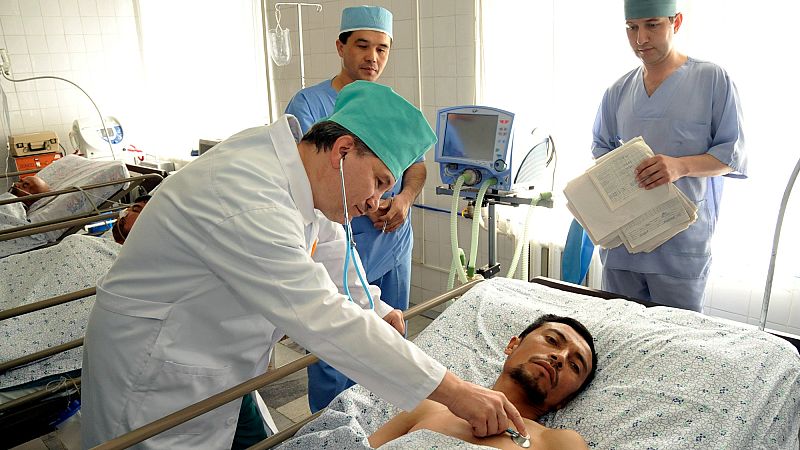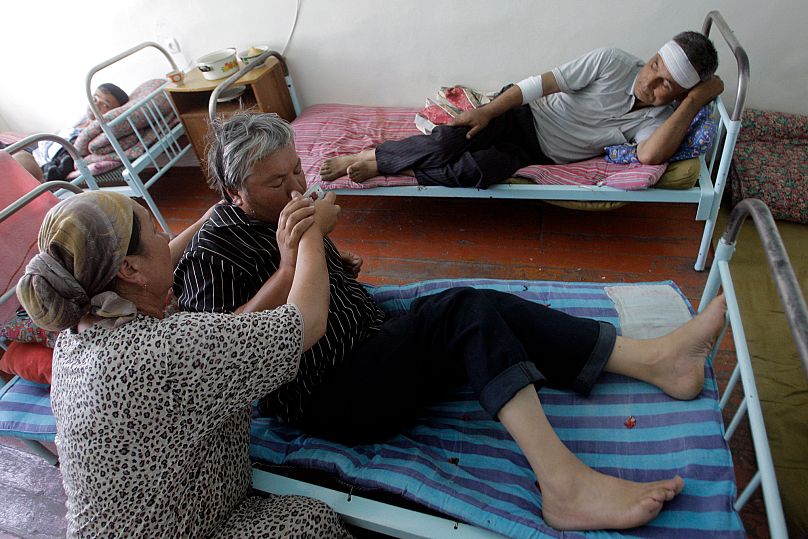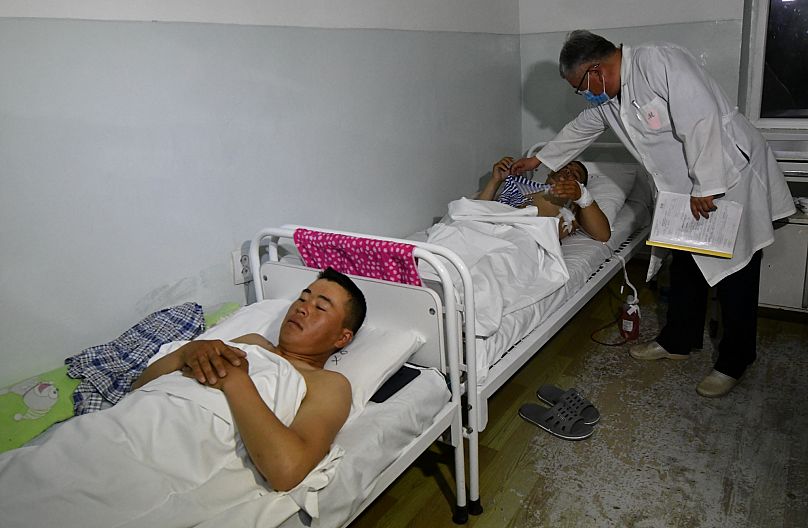
Organ transplantation, which is often the only way to save a life, is directly dependent on donors. But their sometimes unreliable availability often leads to patients dying before receiving a donated organ.
There are two types of organ donations: from a living donor and cadaveric transplants. While options for a living donor are generally restricted to just the kidney and liver, in Kazakhstan it tends to save more lives than a posthumous donation.
"Around the world, 80-90% of donations are posthumous, but the same cannot be said about Kazakhstan and the countries in Central Asia. In our country, 80-90% of donors are living relatives of the patients," said Aidar Sitkazinov, Director of the Republican Centre for Coordination of Transplantation and High-Tech Services in Kazakhstan.
According to him, the reason many people refuse to donate their organs after death is a lack of trust in the healthcare system.
The belief that corruption is everywhere makes them fear that donated organs will be misused or illegally sold, or that doctors will not treat the patients to get to their organs.

Sitkazinov notes that selling organs is punishable by law in Kazakhstan. At the same time, dozens of people and several organisations are involved in the procedure for organ transplantation, and hospitals do not benefit monetarily or otherwise if a patient becomes a donor after death.
Still, he understands that scandals surrounding organ transplantation often deter people from signing the donation form.
Last year alone, there were 15 cases where people attempted to sell donated organs.
Religion also plays a role. Many believe Islam or Orthodox Christianity - the two main religions in Central Asia - do not allow posthumous donation. Religious authorities in Kazakhstan all support posthumous donation as a charitable act, but that still has not swayed many people.
The religious question is not unique to Kazakhstan or Central Asia. Studies have shown that a reluctance to donate organs after death is a long-standing trend in Islamic countries where living donations prevail.
In contrast, in Europe organ donation after death is an established practice, covering up to 50% of the need for organs. Unlike in other parts of the world, Europe also uses organs of donors who died due to heart failure.
Current situation in Kazakhstan
As of May 2025, 4,226 people in Kazakhstan are on the waiting list for some kind of organ donation, 128 of whom are children.
Of the total number of patients, 3,828 are waiting for a kidney, but in the worst case scenario that a donor is not found, those patients also have the option of haemodialysis, which can keep them alive for between 10 and 15 years.
"Not everyone who needs an organ transplant is on this list. This category has no other alternative, only an organ transplant can save their lives," highlighted the director of the transplantation coordination body.

According to him, on average 300 people die because there simply are not enough organ donors.
"I'll give you a simple example – in 2024, we had 86 deceased donors who were diagnosed with brain death. All relatives were approached and only 10 families gave their consent," said Sitkazinov, noting that one deceased person can save seven lives.
Kazakhstan has an opt-in consent system, where each citizen has to officially agree to donate their organs after death. However, even if the person gives consent, their relatives must also agree.
This system came into place in 2020, after several lawsuits from the relatives of deceased persons, who were outraged that organs were extracted without their consent.
In 2024, there were 260 transplantations, of which 237 were from a living donor.
"The main problem is refusal of relatives. We also have a very low expression of will. As of January 2025, with an adult population of 11 million, 115,000 people have expressed their will to opt out, and only 8,000 opted in," noted Sitkazinov.
All Central Asian countries share similar problems when it comes to posthumous donation; lack of trust in the system and misconceptions about the donations themselves.
Until public awareness increases and systems prove to be more transparent and secure the number of organ donations from deceased people is unlikely to grow significantly.







